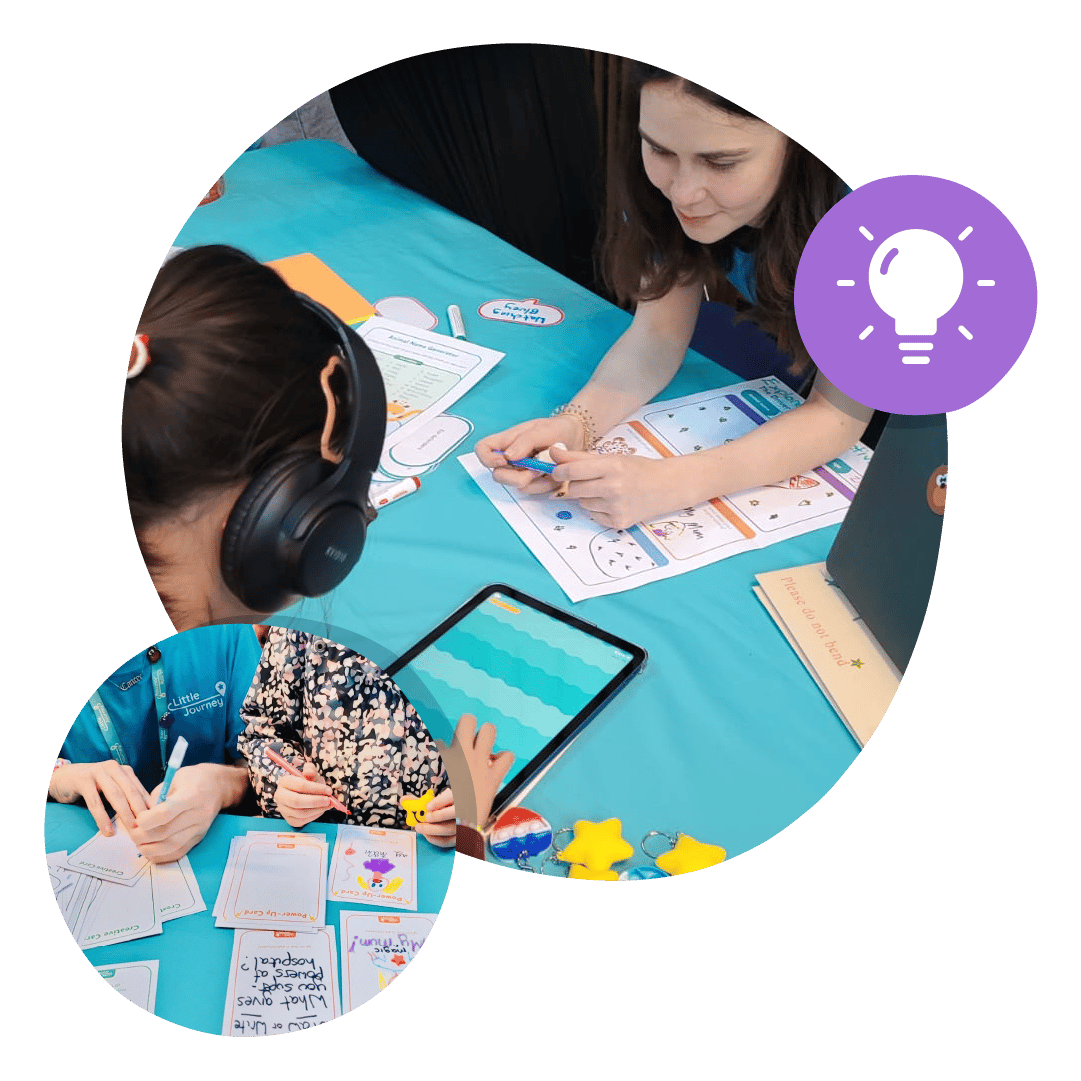Download the free Little Journey App
Award winning support app for you and your child
Our award winning mobile app supports families through every step of their healthcare journey. We help to reduce anxiety and improve hospital visits with information, planning, and support tools. Loved by patients, parents and healthcare staff - we’re rated at 4.7 (out of 5) stars on the App Store.
.webp?width=960&height=960&name=LJ%20Website%20Update_Phone%20Screens%20(1).webp)
The Little Journey app offers:
- Virtual hospital tours to explore the different rooms and learn about your procedure
- Bite-sized information articles to prepare and inform
- Distraction and soothing activities for when you need a moment of calm
The app is compatible with assistive technologies and independently audited for accessibility.
Find this, and more, in the Little Journey app!
Why should I use Little Journey?
Reduced anxiety
We have reduced anxiety for children and their caregivers in multiple studies with our at-home learning and preparation support.
Faster recovery time
We help children and young people recover faster from surgery, so they can get back to doing what they love!
Decreased fasting times
We cut down fasting times by 1 hour for liquids and 2 hours for food. Our handy fasting guide reminds you when to stop eating and drinking before a procedure.
Positive health behaviours
We teach children and young people positive health behaviours they can carry with them through life.
Less time off
We help children and young people miss fewer days of school, so they can catch up on their education and spend time with friends.
Better patient experiences
We enhance patient satisfaction and experience of care through age-tailored preparation content, improved communication and step-by-step support.
Co-design with us!
We believe the best health solutions are co-designed with the people who use them, not for them. That’s why we’re inviting children, young people, and caregivers to join our Advisory & Co-Design Panel.
By joining, you’ll help shape the future of Little Journey. From the features we develop to how we support families through their healthcare experiences. Whether you're a young person with ideas, or a parent who knows what really works, your voice matters.

Here's what families think of our app
"The effect of using the Little Journey app was transformational with Alexander excited instead of scared for his ‘big adventure’.
“Amazing app, helped to show my daughter what she would experience, took a little of the anxiety away. Very easy to use and very informative.”
“We think the app is a really good idea. We hadn’t really discussed the operation with Freddie yet as we weren’t quite sure what to say or how best to go about it, so the app really helps with that..”



.webp?width=1081&height=1081&name=LJ%20Website%20Update_4.%20Home%20page%20(patients%20%26%20families).webp)